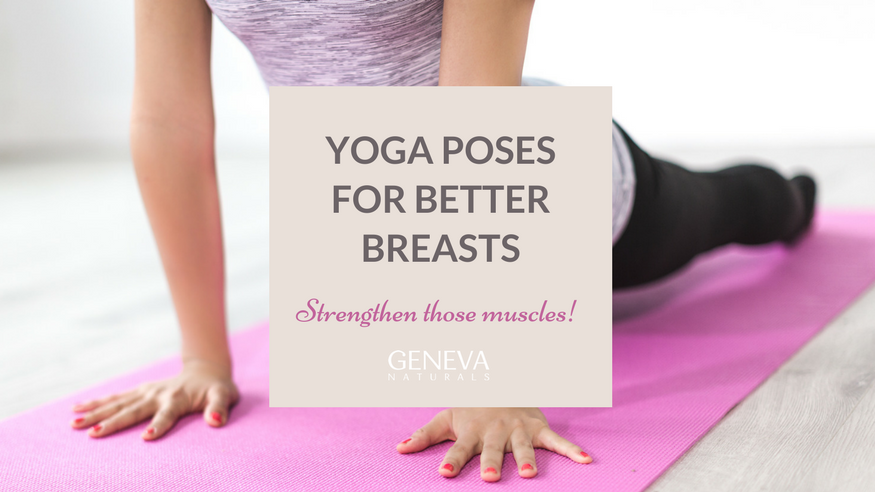Best Vitamins for Skin Health

You may have heard popular phrases like, “healthy skin from the inside out”, “you are what you eat” or “healthy skin starts with good nutrition”. Doctors, scientists, expert researchers, cosmetologists, estheticians and dermatologists everywhere have been researching for years the secrets behind healthy, clear, younger looking skin. Some will tell you it has a lot to do with your skin care regimen, how much water you drink, climate and exposure to free radicals, even genetics. But most will tell you it has something to do with the products we put on our skin and the nutrition we put in our bodies. Nourishing our bodies with the proper vitamins and nutrients, we optimize our skins efforts to slow the signs of aging. But first, you need to know more.
- What is the difference between a vitamin and a supplement?
- Are there certain types of vitamins that are best for my skin?
- What do they do these vitamins do that makes them so essential?
- Where is the best source to finding these vitamins?
- How can I incorporate vitamins in to my skin care regimen at home?
Vitamins and Skin Care

Walk the aisles of your local drugstore, Whole Foods or even a high end cosmetic and skin care counter and see ingredients like Vitamin A, Vitamin C, Vitamin D, Vitamin K… before you know it, you’ll be through the entire alphabet. But what do vitamins have to do with skincare? I’ll answer these 5 other questions in an attempt to understand how vitamins contribute to healthy skin.
1. What is the difference between a vitamin and a supplement?
Vitamins occur naturally in our bodies and also in the foods we eat. They can be found in a variety of ways like pill, powder, liquid, capsule and tablet. Vitamins are meant to be taken in these forms as a supplement to our diet. Each vitamin has a specific role within the body and are necessary to fight infection, disease and overall function. Can taking too many vitamins be bad for you? Yes, it’s possible to have too much of a particular vitamin. Be sure to consult with your medical professional if you have any questions about your individual vitamin needs.
Supplements are generally a mixture of multiple ingredients which can include vitamins. But supplements are meant to be added to our routine, hence the name supplement. Even if we’re already getting the proper amount of vitamins in what we eat, a supplement should never take the place of healthy vitamin use and production. A doctor can help you determine which vitamins you may be lacking through a simple blood test and can suggest a variety of ways to incorporate that particular, or a variety of vitamins and the recommended form of consumption. It’s best not to guess – especially because some vitamins and supplements can interfere with prescribed medications.
2. Are there certain types of vitamins that are best for my skin?
The short answer is yes. There are actually 8 vitamins that offer benefits to healthy skin. Each has unique characteristics that target various skin disorders and every day issues like dry skin, acne and fine lines. Vitamin deficiencies in the body can be reflected in our skin so knowing and understanding how these vitamins work can be a great resource when targeting your specific type of skin. And because these vitamins can be found in a multitude of forms, you can find which vitamin or vitamins your body needs and choose the form that works best for your skincare regimen.
The 8 vitamins that work best for improving skin health are: Vitamin A, Vitamin B3, Vitamin B5, Vitamin C, Vitamin D, Vitamin E, Vitamin K and Folic Acid. These 8 vitamins have components that contribute to healthy skin and have proven effective in improving overall skin quality.

3. What do these vitamins do that make them so essential?
Vitamin A
Also an antioxidant, this vitamin is beneficial in combatting the signs of aging and preventing acne. Skin care products containing Vitamin A can cause irritation to some people, so most need to be prescribed. Using products containing Vitamin A have proven to be effective in smoothing fine lines and wrinkles and improving overall skin clarity. If your skin appears to be dry or flaky, you may be deficient in Vitamin A.
Vitamin B3
More commonly known as niacin, Vitamin B3 has more benefits than just your skin; it’s also effective in working for your nervous system, brain and blood cells. Research has shown Vitamin B3 can reduce the signs of aging and can boost skin’s brightness. Mild exfoliators and products specifically to reduce skin’s redness often contain Vitamin B3.
Vitamin B5
Pantothenic acid or panthenol are alternative names for Vitamin B5. Best known for improving skin’s hydration, research has shown Vitamin B5 to improve the skins barrier to retain moisture and prevent it from drying out by instantly hydrating skin cells. This added moisture is effective in preventing fine lines and wrinkles from appearing. Vitamin B5 is anti-inflammatory, which helps improve skin clarity.
Vitamin C
For more than just boosting your immune system or preventing a cold, Vitamin C boosts collagen production improving skins firmness and clarity. It’s also great at creating a barrier to external factors like the environment and free radicals. Some experts even believe Vitamin C can be used to treat hyper-pigmentation and skin discoloration.
Vitamin D
The “sunshine vitamin” can be absorbed by our skin from sunlight. But many people who live in colder climates or wear sunscreen year round are likely to be Vitamin D deficient. Research studies show this vitamin is effective in clearing up acne or preventing future breakouts, as well as working with your body to fight infections.
Vitamin E
Generally the most common of the skincare vitamins, Vitamin E is an antioxidant that will protect your skin from environmental factors, free radicals, buildup of unnecessary oils and developing acne. It can help to reduce the appearance of scars and dry, flaky skin. Vitamin E helps keep skin soft and smooth creating a more youthful appearance.
Vitamin K
This vitamin is vital to skin’s healing process. Without enough Vitamin K, your blood could not coagulate (change to a solid or semisolid stat, otherwise known as clotting). If you suffer from dark skin due to circulation issues, spider veins, stretch marks, scars or skin discoloration – Vitamin K can work to improve the appearance of the imperfections. It can also be used to fade bruising.
Folic Acid
Most commonly known as a vitamin to be taken during pregnancy, Folic Acid is essential to the production of new cells. It was recently studied that Folic Acid and creatine combined can boost collagen production thereby improving skin’s firmness. So while folic acid is recommended during pregnancy, it has now been proven to improve skin’s health.
When you identify what type of skin you have, you may be surprised to see the connections between the various vitamins and what your body may be lacking. Vitamins can play an important role in improving our skin health and appearance. Another way to introduce these vitamins to our bodies is through the foods we eat.

4. Where is the best source to finding these vitamins?
Vitamin A
Found in: Sweet potatoes primarily, but also fish, milk, eggs, spinach, carrots and beef
Example: 1 medium size sweet potato contains 561% of the recommended daily value (DV) of Vitamin A
Keep in mind: Vitamin A deficiency can lead to a weakened immune system and increased infections. Increase levels of Vitamin A to boost your immune system and ramp up your resilience to infections.
Try this Recipe: Sweet Potato Wedges
3 small sweet potatoes
1 ½ Tbsp. garlic flavored olive oil
½ tsp dry mustard
2 tsp fresh minced rosemary
½ tsp salt
Preheat oven to 450 degrees. Peel sweet potatoes and cut lengthwise into 8 wedges. Combine sweet potatoes with remaining ingredients in a bowl and mix to coat. Arrange wedges on a cookie sheet and bake for 30 minutes or until soft, turning after the first 15 minutes.
Vitamin B3
Found in: Dried yeast, but also peanuts or peanut butter
Example: 1 cup of peanuts contains 100% of the recommended daily value (DV) of Vitamin B3 or Niacin
Vitamin B5
Found in: Chicken liver, whole grains, avocado and sunflower seeds
Example: 3oz. Chicken Liver contains 83% of the recommended daily value (DV) of B5
Keep in mind: 900mg per day of Vitamin B5 has shown to lower cholesterol and reduce the risk of developing cardiovascular disease. This amount is higher than recommended, so consult with a physician before increasing your intake of Vitamin B5.
Vitamin C
Found in: Yellow bell peppers, oranges, kiwi fruit, broccoli, strawberries, mangos, Brussels sprouts and cantaloupe
Example: 1 serving of Sweet red peppers contains 159% of the recommended daily value (DV) of Vitamin C
Keep in mind: With a nearly endless list of Vitamin C benefits, it’s one of the most important vitamins we can introduce to our diet and skin care. And because Vitamin C isn’t stored in the body, an overdose isn’t an issue. Your body will eliminate any extra vitamin C, but a safe amount would be to not exceed 2,000mg per day.Try this recipe: Stuffed Roasted Yellow Peppers
6 large yellow bell peppers
1 Tbsp. olive oil
4 garlic cloves, minced
6 oz. fresh spinach
1 Tbsp. lemon juice
1 tsp. salt
¾ cup uncooked couscous (2 cups cooked)
½ cup crumbled feta cheese

1. Roast peppers on gas stove’s open flame, turning with tongs until skin is blackened or roast them under the broiler turning every 5 minutes for 15 minutes. Transfer to bowl and cover with plastic wrap, allow to cool. When cool enough to handle, peel peppers starting from the stem side and carefully cut off the tops, rinse out seeds and set aside.
2. Lightly coat sauté pan with olive oil and place on medium heat. Sauté garlic until it turns golden, add spinach and cook over medium heat until it wilts. Remove pan from heat. Stir in lemon juice and salt, place spinach in a bowl. Reheat oven to 350 degrees.
3. In a small pot, cook couscous per directions on package. Using a spatula, add cooked couscous and feta cheese to spinach and mix well.
4. Place peppers on a baking sheet and generously stuff them with couscous and spinach mixture. Bake on the center rack for 8 minutes, serve immediately.
Vitamin D
Found in: Sunlight, Cod liver oil, sardines, salmon, tuna, eggs and mushrooms
Example: 1tsp. Cod liver oil contains over 100% of the recommended daily value (DV) of Vitamin D
Keep in mind: Studies have shown a correlation between low levels of Vitamin D and weight gain. If you’re trying to lose weight, getting your Vitamin D levels checked may be a good first step.Vitamin E
Found in: Almonds, spinach, sweet potatoes, avocado, sunflower seeds, butternut squash and olive oil
Example: 1oz contains 27% of the recommended daily value (DV) of Vitamin E
Keep in mind: If you are someone who experiences cravings and/or crampings due to PMS, Vitamin E taken 2-3 days before and 2-3 days after your menstrual cycle can reduce symptoms.
Vitamin K
Found in: Kale, scallions, Brussels sprouts, cabbage, broccoli, prunes and cucumbers
Example: ½ cup kale contains over 100% of the recommended daily value (DV) of Vitamin K
Keep in mind: Vitamin K has anti-cancer properties: it has been proven to be effective in reducing the risk of stomach, nasal, oral, colon and prostate cancers.
Folic Acid
Found in: Chickpeas, liver, pinto beans, lentils, spinach, asparagus, avocado, beets and broccoli
Example: ½ cup garbanzo beans contains over 100% of the recommended daily value (DV) of Folic Acid.
Keep in mind: Those commonly affected by lower levels of folic acid are pregnant or breastfeeding women, those on kidney dialysis, alcoholics, and people with liver disease or taking certain medications.
5. How can I incorporate vitamins into my skin care regimen at home?
Find out what your skin needs
Read the ingredients
Customize your own recipes

Also in Geneva Naturals

What Is A Retinoid Oil? Retinoid Oil Benefits, Uses, Effects & More

DIY Clay Mask Recipes for Clear Skin


